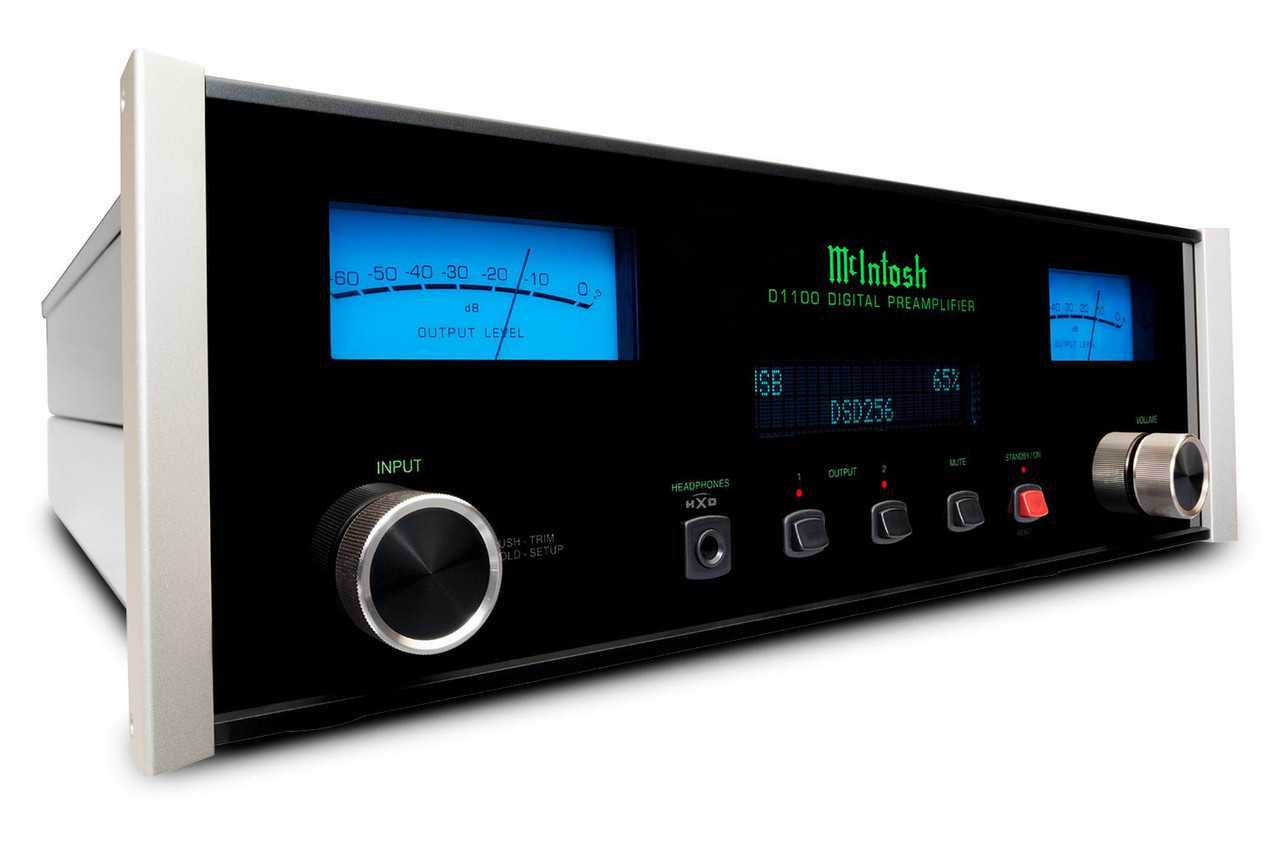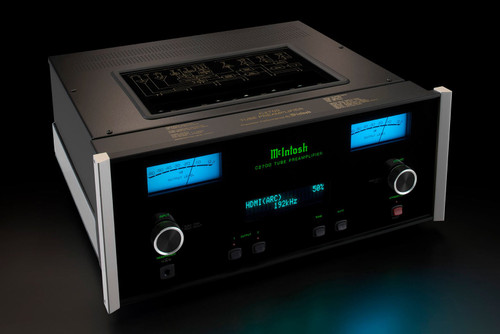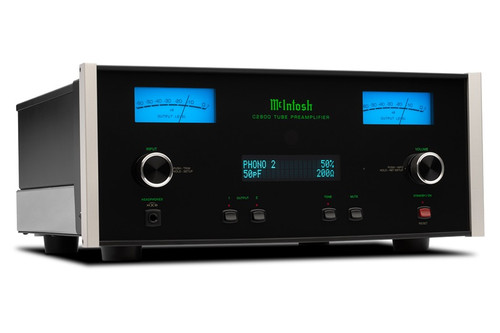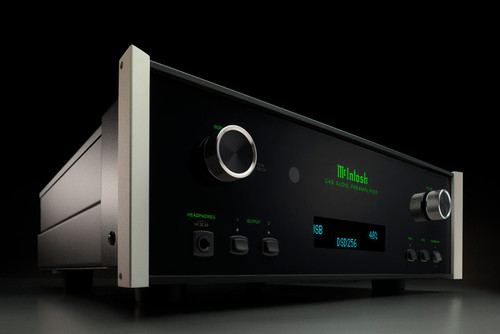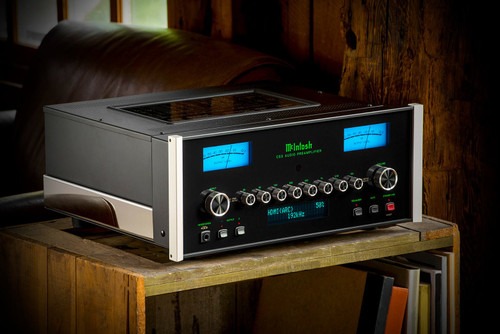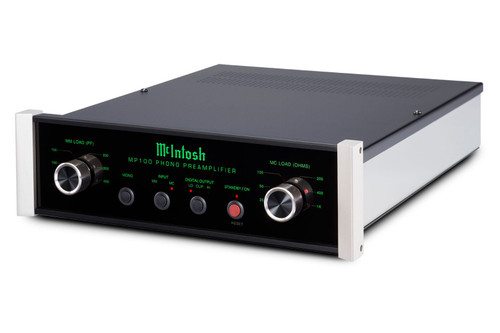Product Description
D1100
2-Channel Digital Preamplifier
- Reference level digital preamp and DAC
- Use as a standalone unit or with C1100
The D1100 Digital Preamplifier is a reference level stereo preamplifier and digital-to-analog converter (DAC). Its 8-channel, 32-bit DAC is used in Quad Balanced mode with half of it dedicated to the left audio channel and the other half to the right channel. It’s the most advanced DAC we’ve ever used and delivers an unprecedented level of performance so that all your digital music is reproduced with exceptional accuracy and authenticity.
Enough inputs – 9 to be exact – are included to keep even the largest digital system connected as 3 optical, 3 coaxial (2 RCA and 1 BNC), plus 1 each of MCT, AES/EBU and USB inputs are on board. The USB input accepts up to 32-bit/384kHz signals and supports DSD64, DSD128, DSD256, DXD 352.8kHz and DXD 384kHz playback1. All the other inputs accept up to 24-bit/192kHz. The MCT input is a McIntosh exclusive and allows for enjoying to the high resolution audio found on SACDs via the MCT500 SACD/CD Transport. Three sets of balanced and unbalanced stereo outputs connect the D1100 to your system. One set of outputs has fixed volume while the other 2 have variable volume; the variable outputs can also be switched on and off for additional user configurability.
The D1100 "has a way of reproducing music in an incredibly engaging, yet transparent style... The sound quality of a wide range of music played through the D1100 was rich, vibrant and lush, yet incredibly detailed." Named to the Computer Audiophile Suggested Hardware (CASH) List. - Computer Audiophile
The D1100 is designed for ease of use: all inputs can be renamed; its 4 data ports and 4 power control triggers are fully programmable; and it has both IR and RS232 external control. For personal listening, Headphone Crossfeed Director (HXD®) will bring a new depth and spatiality to your music.
The D1100 is a full featured, fully functional self-contained unit that can be used independently of any other preamplifier. But thanks to McIntosh’s engineering prowess, it can also be connected to and used in tandem with its analog equivalent, the C1100 Vacuum Tube Preamplifier2. Combining the two together with the included umbilical cable creates the definitive analog and digital stereo preamplifier. When connected, the C1100 takes over all control of the D1100 resulting in a single and easy to use interface. Like the C1100, the D1100’s left and right audio channels and power supplies are electrically isolated from each other to produce true dual mono operation when used either by itself or with the C1100. This isolation delivers absolute stereo separation and sonic purity.
"Through the D1100, I was sitting in the best seat in the concert hall. Through my [current preamp], I was clearly listening to a recording of a live event... Amazing bass, a beautiful midrange, detailed and airy treble, stunning imaging, and an expansive soundstage. It brought out the best qualities of my speakers and made them sound better than I had ever heard them before." - Secrets of Home Theater and High Fidelity
The D1100 is one of many McIntosh products to receive Roon Tested designation from Roon Labs. As a Roon Tested partner, McIntosh has provided equipment to Roon for testing with a variety of different operating systems and computers, and shared information about its design and capabilities.
It’s housed in a beautifully polished stainless steel and hairline brushed black Titanium stainless steel chassis – the same as the C1100 so the two will seamlessly blend with each other if used together. A black glass front panel, blue meters, knobs, an illuminated logo and brushed aluminum end caps complete the ageless McIntosh look. It can be paired with a variety of amplifiers, room correction devices, speakers, CD players, streaming audio players and other source components to make a complete home audio system. Contact your local dealer to learn more.
1) Please see Downloads tab for required driver that must be installed on Windows based computers (if an Apple based computer is used, no additional driver is required). See Owner's Manual for driver instructions.
2) The C1100 firmware will need to be updated to its latest version for proper operation with the D1100.

